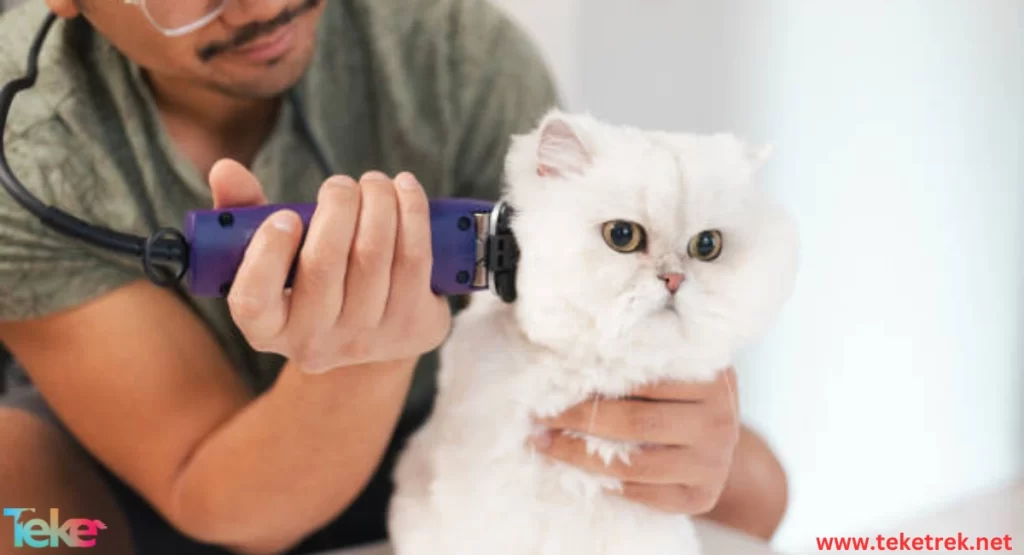Knowing the symptoms of a cold in cats and treatment methods is one of the important aspects that the breeders of these cute creatures pay great attention to, according to their own standards. The winter that brings with it the cold will affect various living creatures, including cats.
It is worth noting that cats get colds like humans, especially in the winter and fall, as a result of humidity and sudden changes in temperature.
What is meant by the term “colds in cats”? What are the symptoms of a cold in cats? How to treat respiratory infections in cats at home? How can cats be protected from colds? We will answer these questions and many others in this article. Follow along with us.
What is a cat cold?
At the beginning, we must point out that colds in cats are an infection that affects the upper respiratory system, as a result of a bacterial or viral infection, knowing that they are similar to the colds that affect humans. This matter is due to several reasons, the most prominent of which are:
Viruses that infect the respiratory system, most notably herpes virus and calicivirus.
Types of bacteria such as chlamydia bacteria.
Climate-related seasonal changes that affect humidity and temperatures.
It may also occur due to immunodeficiency in the infected cat.

Cold symptoms in cats:
In the context of our talk about cold symptoms in cats and treatment methods, we must point out the signs that indicate that this pet is suffering from a cold, very similar to those that appear on the animal. We will mention the most prominent of them as follows:
Runny or stuffy nose, with red and irritated mucous membranes.
Frequent coughing or sneezing.
Lethargy and lack of activity are one of the most prominent changes that affect it, as we notice the cat’s tendency to remain still.
Loss of appetite and unwillingness to eat, which are among the most serious symptoms of the common cold.
Notice that the cat’s eyes are watery, red, or have secretions.
A slight increase in temperature that occurs as a result of inflammation that leads to the common cold.
Vomiting of varying degrees, whether severe or mild.
Enlarged lymph nodes.
https://teketrek.net/en/animals-unaffected-by-cold-secrets-of-organisms-adaptation-to-freezing-environments/
Ways to treat a cold in cats at home:
If you are a fan of raising cats at home, you should consider the following things to treat them in the event of exposure to colds:
Provide a warm environment:
It is very necessary when a cat is exposed to a cold, to prepare a comfortable and warm place away from air currents, as the windows and doors must be closed tightly to prevent air from leaking into the room, while using blankets or beds designated for cats, especially electric heating pads that protect your cat from exposure to burns and heat. Excess.
Air humidification:
This is done by using a humidifier to maintain humidity in the air, and placing the cat in a steam bath for a few minutes to relieve congestion. As we know, when a cat is exposed to a cold, its respiratory tract is closed, so humidification with steam is an ideal treatment option.
Improve nutrition and fluids:
As we mentioned, when a cat suffers from a cold, it loses its appetite and becomes dehydrated, so it is necessary to provide nutritious and easy-to-digest meals that stimulate its appetite, especially those wet foods that help in supplying fluids, in addition to making sure to drink water regularly, or using warm broth to encourage drinking. , such as chicken or meat soup.
Prescribed medications:
When symptoms worsen and continue for more than a week, a veterinarian must be consulted to prescribe the appropriate medications, while avoiding giving him any human medications without consulting a specialist, as some medications may be dangerous to his life.
When should you visit the vet?
When talking about cold symptoms in cats and treatment methods, we must know the cases that require the intervention of a veterinarian, as the need for this matter appears in one of the following cases:
Symptoms persist for more than a week with no response to home treatment.
Having difficulty breathing or worsening of the condition, this indicates the presence of severe infections in the respiratory tract.
If signs of dehydration or weight loss appear, the veterinarian will resort to medications that increase her immunity and resistance to disease.
In some cases, the doctor will order tests and x-rays if your cat does not respond to the prescribed treatment.
https://teketrek.net/en/how-do-animals-build-their-homes-in-winter/
Preventing cat colds:
Below we will give you some points that you should follow to prevent your cat from contracting colds in the winter:
Strengthening cats’ immunity by providing healthy, balanced food, while avoiding dairy products if they suffer from colds so as not to increase their severity.
Ensure good heating in the house, and place the cat’s home in a place where drafts do not enter.
Vaccinating cats against viral diseases, as this must be done from the age of 8 weeks, and adherence to the veterinarian’s instructions related to this matter.
Clean the dishes in which cats are served daily.
Keep your healthy cat away from infected cats, to prevent transmission of infection to them.
Giving cats an annual vaccination, as their quadrivalent vaccination protects them from viruses that cause colds for an entire year.

FAQs
Can cats catch a cold?
Yes, cats get colds like any other living creature, especially young kittens whose immune systems are still developing.
How do I treat my cat for a cold at home
You can treat your cat’s colds at home by providing a warm environment with humid air, in addition to providing appropriate food and consulting a veterinarian if the problem worsens.
How do I know if my cat has a cold?
You can do this through the appearance of many symptoms such as: runny nose, unwillingness to eat, decreased activity, eye discharge, and many other symptoms.
How can I help my cat with a cold?
By keeping them warm using blankets and bedding, humidifying the air, and providing them with nutritious food.
How do cats tolerate the cold?
Cats cannot tolerate cold and low temperatures, but they can do so for short periods if they are in a warm home.
What is the best medicine for colds in cats?
We cannot determine a suitable medication, as this must be done under the supervision of a specialist veterinarian.
Can cats fight colds on their own?
This may be possible when colds are mild and you have a strong immune system, but kittens need special care because their immune system is not yet fully developed.
In conclusion of our talk about the symptoms of a cold in cats and treatment methods, we can say that the cold in cats is common, but it requires special care, especially in young cats. Quick home care and prevention are the key to maintaining your cat’s health in the winter, in addition to consulting a doctor. Veterinarian if symptoms worsen





